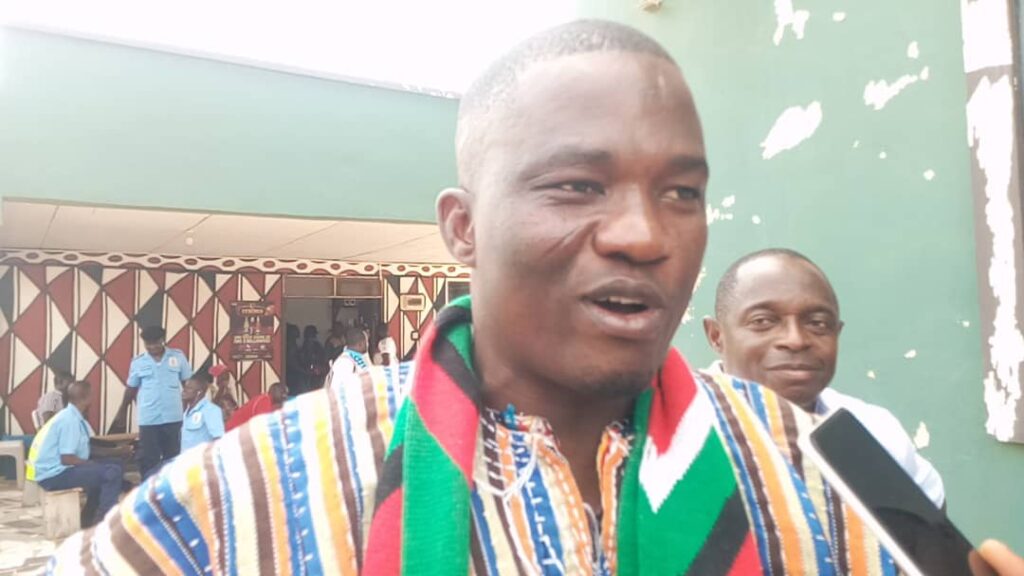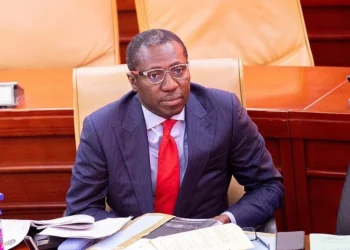The Member of Parliament (MP) for Chiana-Paga and a member of Parliament’s Education Committee, Hon. Nikyema Billa Alamzy, has intensified his campaign for urgent reforms in Ghana’s education sector, drawing attention to a number of pressing issues including student safety, gender imbalances, and the rise of indiscipline in schools.
His interventions come at a time when education remains central to Ghana’s long-term development goals under President John Dramani Mahama’s administration.
Speaking during recent engagements, Hon. Alamzy called for the mandatory construction of perimeter walls around all senior high schools across the country.
He explained that many schools remain vulnerable to external threats because of the absence of secure boundaries, stressing that the lack of walls often exposes students to dangers both within and outside the school environment.
According to him, securing schools physically was no longer optional but a necessary investment to protect students and maintain a safe environment for learning.
The legislator also raised alarm over what he described as a worrying neglect of boys in the education system. He observed that the widening gender gap in schools, where girls consistently outnumber boys, could have far-reaching consequences for society.
“Almost all the schools we visited recently had more girls than boys. We have to start looking out for the boy child, because at the tertiary level, especially in law programs, the girl child is doing far better than the boys”
Hon. Nikyema Billa Alamzy, MP for Chiana-Paga

Hon. Alamzy welcomed the progress made through affirmative action policies which have improved female enrolment, but cautioned that male underrepresentation could worsen societal challenges if not addressed urgently.
He linked the trend to the rise in illegal mining activities, pointing out that “We complain about galamsey, but it is the boy child who is doing it. If we don’t intervene now, we risk losing them to such practices.”
He further stressed that affirmative action must remain intact but insisted on deliberate measures to ensure boys are not left behind. According to him, failure to act could mean that in the next five years female dominance in classrooms may become overwhelming.
His concerns were reflected in recent West African Senior School Certificate Examination (WASSCE) statistics which showed 254,259 females sat for the Oral English paper compared to 207,381 males out of a total of 461,640 candidates.
Support, Discipline and Corporal Punishment
Alongside his concerns, the Chiana-Paga MP revealed that 300 tertiary students from his constituency were set to benefit from partial scholarships under his educational support program.
He explained that the initiative was part of his broader commitment to reduce financial barriers that often prevent many talented but needy students from pursuing higher education. The program, he added, was aimed at encouraging academic excellence and reducing school dropouts in the constituency.

The legislator also reignited debate over the role of corporal punishment in Ghana’s schools. He insisted that its abolition had left a “vacuum” in discipline enforcement, leading to the rise of indiscipline among students.
“I think we should establish clear policies to solve indiscipline in schools. We have to go back to corporal punishment. We always copied it wrongly. When we wanted to cancel it, we were citing America and other countries, but America has gone back. So we need to go back. We shouldn’t have even left in the first place”
Hon. Nikyema Billa Alamzy, MP for Chiana-Paga
He emphasized that Ghana must prioritize homegrown policies rather than blindly adopting foreign models that may not suit the country’s unique social environment. According to him, corporal punishment, when properly regulated, could help deter bullying, harassment, and misconduct that have become prevalent in many schools.
His comments come in the wake of disturbing incidents that have sparked public concern. In one viral video, a student of Accra Academy was seen using a cutlass to flog two colleagues, drawing outrage nationwide.
In another tragic case, Kinbu Senior High School in Accra was thrown into turmoil following the death of Addib Alhassan, a student who was fatally stabbed during an altercation. The victim was rushed to the Adabraka Polyclinic before being referred to Ridge Hospital, where he was pronounced dead.

Security in Schools
Hon. Alamzy underscored the need for comprehensive security policies to protect students. He called for random searches in schools and stronger preventive measures to curb the circulation of dangerous weapons.
“We must educate our students not to be involved in bullying or harassment,” he added.
The Chiana-Paga MP’s interventions highlight the complex challenges facing Ghana’s education sector in 2025. From safety concerns and gender disparities to the pressing need for discipline and accountability, his calls for reform add urgency to the debate about the future of education in Ghana.
With Parliament’s Education Committee expected to deliberate on some of these proposals, the country faces a decisive moment in shaping the direction of its educational policies.























